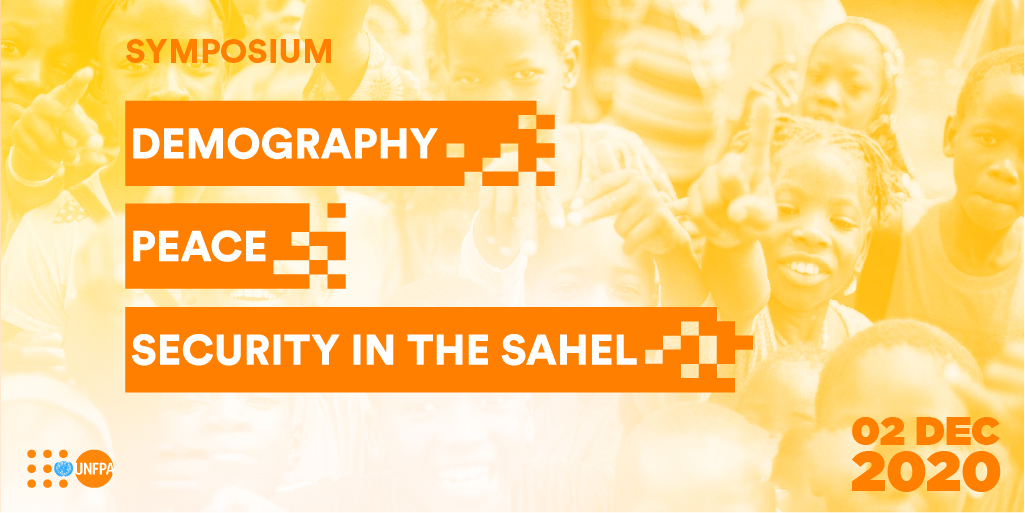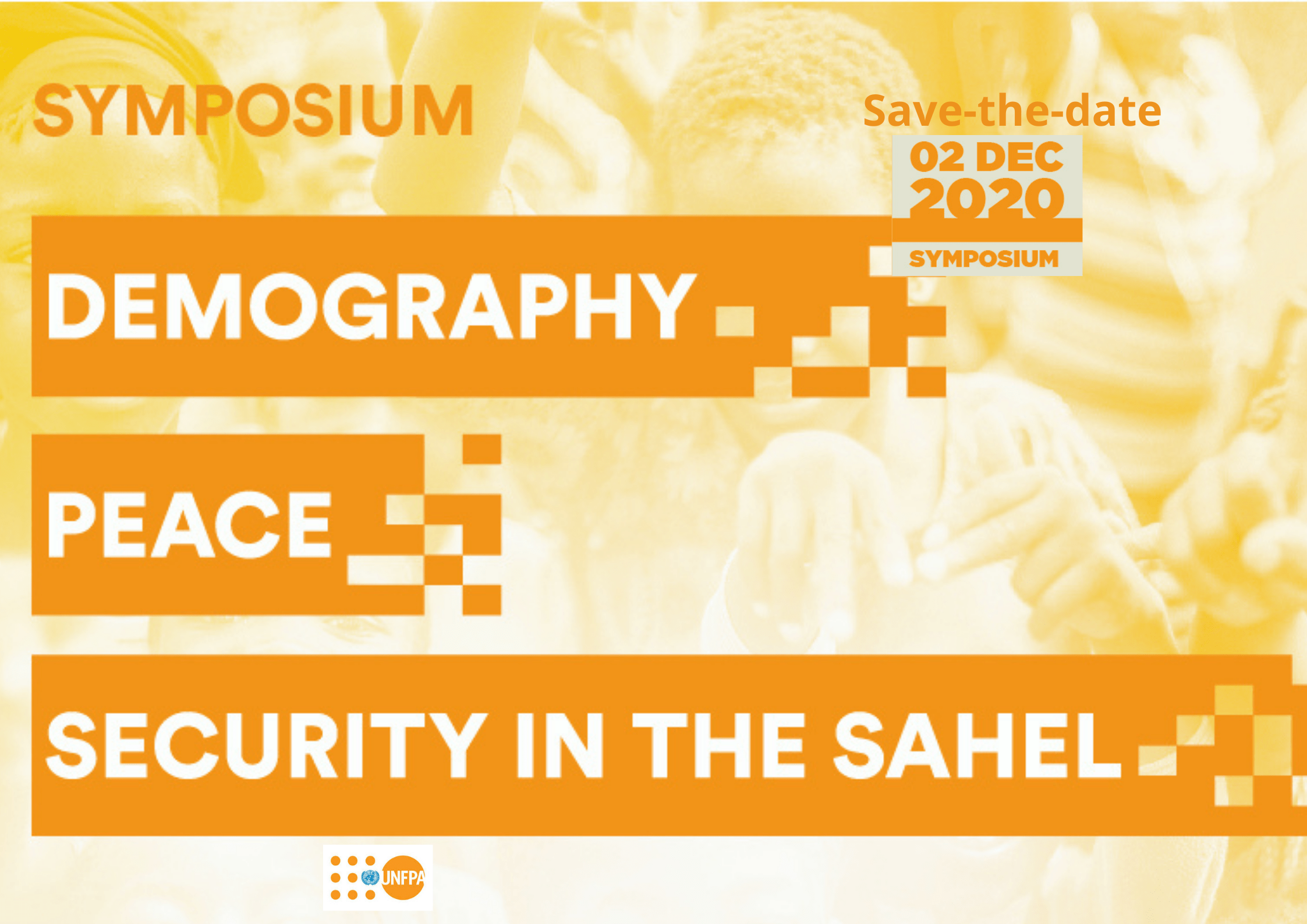
The United Nations Population Fund West and Central Africa Regional Office (UNFPA/WCARO) is organizing a Symposium under the theme “Demography, Peace and Security”, to take place virtually on 2 December, 2020. The main aim of the symposium is to bring in a new narrative on the Sahel region and engage in high-level policy dialogue and advocacy on the link between demography, peace and security based on data and evidence for sustainable solutions and development. The
The symposium will bring together eminent persons from academia and research institutes, representatives of African Union (AU) Member States, United Nations agencies, multilateral and bilateral organizations, civil society organizations and intergovernmental community members, and private sector.
These topics will be considered under the framework of the Sustainable Development Goals (SDG) for 2030 and in particular under Goal 16, which represents a paradigm shift in development policy. The SDGs recognize the importance of peaceful and inclusive societies, justice, and accountable institutions to achieve sustainable development. The topics are also aligned to the commitments made during the Nairobi Summit on ICPD25 and the African Union Agenda 2063.
This meeting will include an examination of the empirical relationship between demography, peace and security that is understated in the literature. The discussion will also address issues of planning for development in times of insecurity, conflict and violent extremism, as well as the engagement of the international community and their perspective in the operationalization of the security-development nexus in international cooperation programs.
The meeting will provide a forum for the exchange of ideas, experiences and substantive knowledge on these issues, and offer recommendations aimed at strengthening the implementation of the demographic dividend (DD) agenda, and more broadly, the implementation of the Agenda 2030 on Sustainable Development and the AU Agenda 2063 for “the Africa we want”, in the context of high insecurity and fragility in the Sahel.
Invitees will include heads of state and government, ministers and other government representatives from all G5 Sahel countries, development partners, research and academic institutions, private sector and civil society organizations, in addition to UNFPA regional and country representatives.
Main Objectives
The main objective of the Symposium is to bring in a new narrative on the Sahel region, and engage in high-level policy dialogue and advocacy on the link between demography, peace and security, based on data and evidence for sustainable development. This involves integrating conflict prevention and peacebuilding in development programs or vice-versa.
The results of the symposium will be translated into policy briefs that will also contribute to the implementation of the Program of Action of the International Conference on Population and Development (ICPD), as well as the implementation of the Agenda 2030 on Sustainable Development and the AU Agenda 2063, the Africa we want, in the context of insecurity and fragility in the Sahel.
The symposium is preceded by research conducted in the form of a comprehensive literature review on the relationship between demography, peace and security, followed by a statistical modelling of this relationship and the production of case studies in the Liptako-Gourma countries, including Burkina Faso, Mali, and Niger. This project also integrates the reflections made so far by the United Nations System (through resolutions 1325 and 2250) and the Governments of the Sahel region. The aim is to analyze in-depth the types of relationships (direct or indirect) between demographic change and the occurrence of armed conflict. Preliminary results of this work were presented at a session organized in Mali during the 20th edition of the Bamako Forum.
More specifically, this meeting aims to:
- Provide a space for networking and constructive exchange among eminent persons including Heads of States and Governments, Ministers, development stakeholders, academic and research community, policy makers, civil society organizations, technical and financial partners, private sector, and opinion leaders.
- Agree on the outline elements of a framework for action, based on evidence and experience that provides concrete measures to promote the inclusive and harmonious development of the Sahel to achieve the SDGs and Africa's 2063 Agenda, in the context of insecurity and conflicts.


